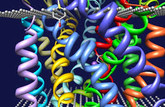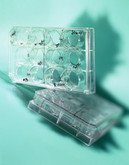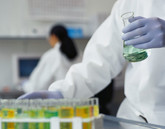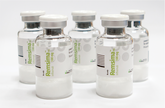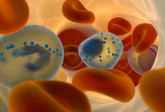Biosimilars/Research
Phase I study suggests similarity of omalizumab biosimilar
Indian generics maker Glenmark Pharmaceuticals (Glenmark) announced on 25 July 2018 that results from a phase I study suggest similarity in pharmacokinetic, pharmacodynamic, safety and immunogenicity profiles between Glenmark’s proposed omalizumab biosimilar GBR 310 and the originator product Xolair (omalizumab).
Inflectra may not be less expensive than Remicade in US
According to research carried out in the US, the cost of the infliximab biosimilar Inflectra (infliximab-dyyb) was only moderately less expensive than the originator biological Remicade (infliximab) in treating rheumatoid arthritis (RA) and exceeded US$14,000 annually under Medicare# Part D*. In addition, out-of-pocket costs for patients taking Inflectra may be more than US$1,700 higher than for patients taking Remicade.
Real-life clinical effectiveness of Razumab in retinal vein occlusion
Authors from Intas Pharmaceuticals presented data from a subgroup analysis of the RE-ENACT study (retrospective, multicentre, observational pooled study on wet age-related macular degeneration [wet AMD], diabetic macular oedema, and retinal vein occlusion) [1]. The RE-ENACT study evaluated the effectiveness of the ranibizumab similar biologic Razumab in Indian patients with retinal vein occlusion (RVO).
Clinical and real-world data for switching to biosimilars
The evidence and issues associated with switching from originator biological disease-modifying antirheumatic drugs (DMARDs) to biosimilars are discussed by authors from French universities and hospitals [1].
Mass spectrometry comparison of Remicade and Remsima
The US entered the era of biosimilars in 2015 with its very first US Food and Drug Administration (FDA) approved filgrastim biosimilar Zarxio (filgrastim-sndz) [1]. Since then, FDA has approved 11 more biosimilars [2]. Nevertheless, one concern with respect to the manufacturing of biosimilars is that every company has its own proprietary manufacturing process, which could potentially lead to differences in drug properties. Consequently, the debate on how ‘similar’ the biosimilar is to the originator still remains controversial. Thus, a comprehensive but rapid characterization platform that can validate any clinically meaningful differences is required. In this regard, Pisupati et al. [3] carried out a study comparing the reference product Remicade (infliximab) with the first US monoclonal antibody (mAb) biosimilar Remsima (Europe)/Inflectra (US) by incorporating state-of-the-art mass spectrometry-based multiple-attribute monitoring (MAM).
Switching to etanercept biosimilar SB4 safe and effective in a hospital setting
Authors of a study carried out at a UK hospital found switching to etanercept biosimilar SB4 to be safe and effective [1].
Expediting FDA approvals for biosimilars
A number of recommendations for the US Food and Drug Administration (FDA) to simplify biosimilar licensing laws, and thus make biosimilars more accessible, are offered in a recent review [1]. Recommendations include allowing smaller batch sizes for testing, encouraging substitution for naïve patients, and removing the requirement for bridging studies.
Phase III trial for subcutaneous Remsima completed
Celltrion Healthcare (Celltrion) announced on 29 August 2018 that it had completed a phase III study with the subcutaneous (SC) version of its infliximab biosimilar Remsima (CT‑P13).
Reasons for switching to biosimilars and immunogenicity
Authors from French universities and hospitals discussed the evidence and issues associated with switching from originator biological to biosimilars [1].
Stakeholder perspectives on biosimilars in oncology
Monoclonal antibody biosimilars represent a novel advance in the field of oncology, and their integration into routine clinical practice present challenges for clinicians, nurses, patients and regulators. Researchers therefore investigated the perspectives stakeholders including a clinician, specialist nurse, patient advocate, regulator and economist on optimizing the uptake of monoclonal antibody biosimilars in the treatment of cancer [1].
